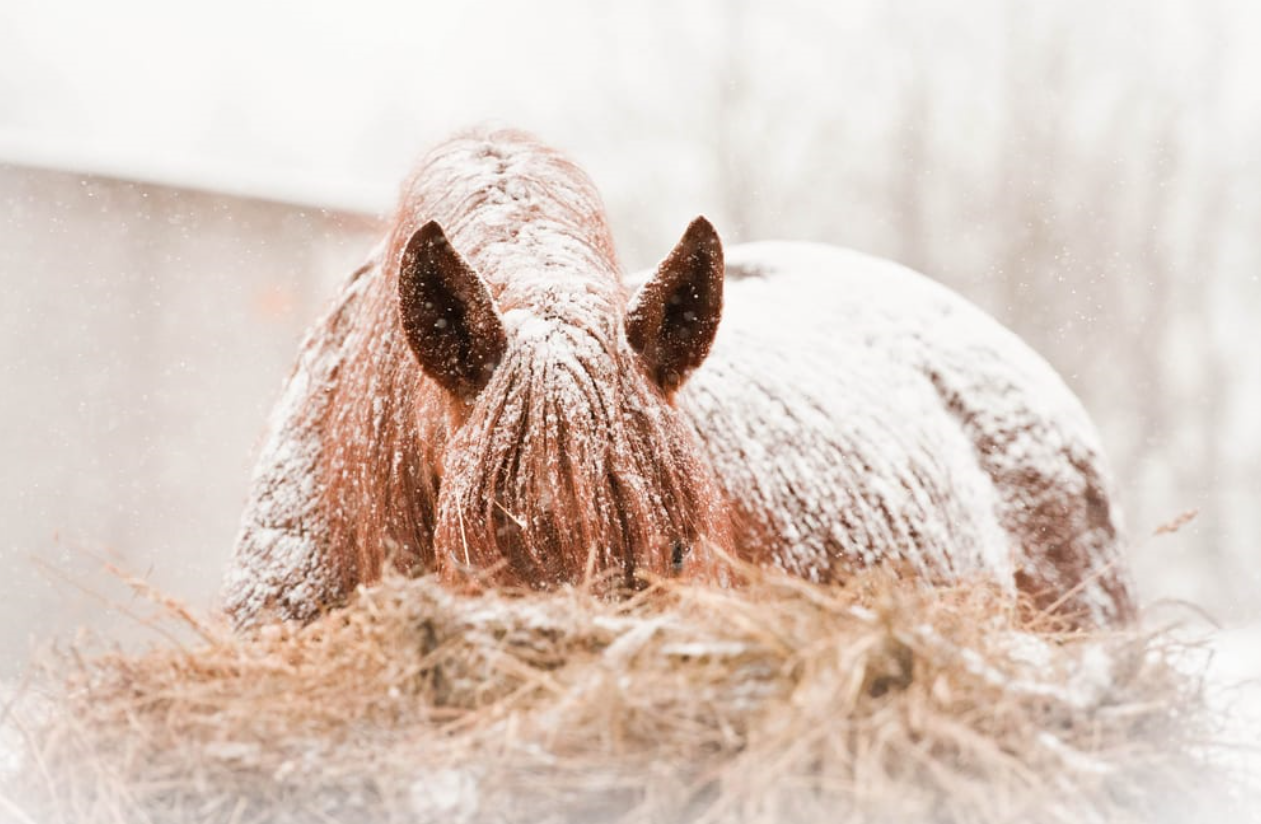Many horses will struggle to maintain weight and muscle over winter. This may be affected by a number of factors;
Limited grass growth – The shorter days and frosty nights mean that grass growth is at its lowest in winter providing limited food for the horse. The ground also tends to be softer in winter caused by the increased rainfall, this may cause areas of the paddock to be muddy which also reduces the amount of grass growth.
Poor quality grass – With a reduction in sunlight hours, grass spends less time in photosynthesis which not only effects the growth rate but also means that the grass is producing less starch and glucose which is essential for the horse’s diet.

Using energy to stay warm – The body needs to maintain an optimum temperature for bodily functions to occur. The body does this by using up the bodies fat reserves to product heat. In the winter months the horse’s metabolism may increase to maintain body temperature meaning that more fat is being burnt.
What can be done?
Strip Graze – If you live in an area that receives a lot of rainfall it might pay to strip graze your paddocks and move horses regularly to avoid excess mud build up and make sure that grass isn’t being damaged beyond repair. This will help to regenerate slow growing grass and provide more food for the horses.
Rug horses and/or provide shelter – For horses prone to weight loss it may be beneficial to cover the horse with a waterproof cover to assist the body in maintaining optimum temperature, this will reduce the amount of fat burnt in maintaining body temperature. However, it is also very important not to over rug the horse, if the horse is kept too hot this will induce sweating which will also lead to weight loss and possible skin irritation. If possible, providing your horse with shelter from wind and rain as well as a lightweight cover may be the best solution as this allows the horse to regulate its own temperature. Note: it is important to provide shelter in a place where the horse still has access to food so that the horse can continue to use the shelter if needed. For horses prone to being overweight, try not covering the horse or using a light rain sheet, this will help increase weight loss in a natural and healthy way for the horse.
Hard feeds – The lack of nutrients in the grass during winter may mean that your horse is lacking in some essential minerals. This can be over come by providing the horse with a hard feed. Most formulated hard feeds contain a complete mix of all essential minerals, However, if you are not feeding the horse the recommended amount provided by the manufacturer it may also pay to add a mineral supplement to the feed. It is also essential to ensure that the horse is getting enough fibre as this is the main source of energy for the horse. This can be provided with hay and haylage.
Supplements – Supplements can be used to provide the horse with basic minerals but can also be used for horses with pre-existing conditions or factors such as old age or previous injury. Some great winter supplements include;
Celery Seeds – This is a great winter top up that contain warming properties to help the horse combat the cold and also assist with improving circulation.
Biotin – A B-vitamin which encourages the growth of healthy hooves and coats, improving hoof growth and hardness. Optimal hoof condition is essential over the winter months.
Bioavailable Turmeric and Black Pepper – This has great anti-inflammatory properties as well as being a digestive aid and assisting older horses with arthritis and joint stiffness.
MSM – This is great to support healthy joints and muscles, accelerates recovery after exercise and improves circulation as well as boosting the immune system.
Devils Claw - A very popular winter supplement. Has a great anti-inflammatory effect for joint and muscle pain providing a superb option for musculoskeletal disorders.
